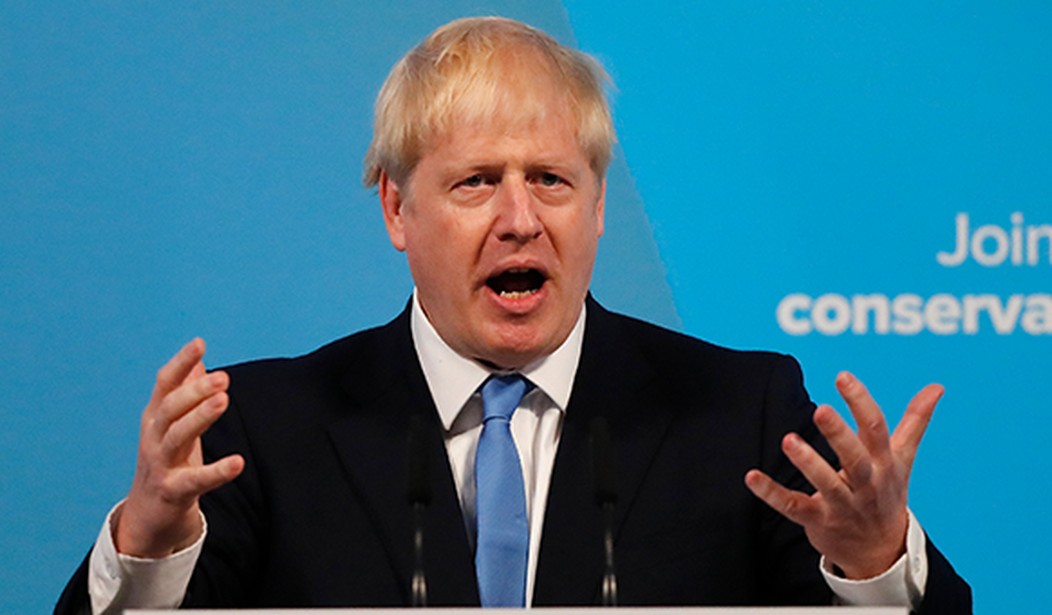Last week the world's second-oldest political party showed, and not for the first time, its capacity to regenerate itself and win an impressive majority in difficult circumstances.
That's a reference to the victory of the Conservative Party in Britain's Dec. 12 general election, in which it won a 365-seat majority in the 650-member House of Commons -- about which I wrote at considerable length earlier this week.
The resilience of the Conservative Party should not come as a total surprise to those who know that it is older than our Republican Party and just a dozen years less longstanding than our Democrats. Our parties' persistence is the subject of my recent book, "How America's Political Parties Change (And How They Don't)."
Some think the Conservative Party even older, tracing it back to the Tories who combatted the Whigs in the elections of 1679 and 1681 (both names were insults). But I follow its leading historian, Robert Blake, in dating it to 1846, when Benjamin Disraeli led a rebellion against then-Prime Minister Robert Peel's embrace of free trade.
Disraeli, the Anglican son of a Jewish writer, believed the party should be guided by the great English landowners and the established Church of England yet, at the same time, could be the voice of the patriotic people of England, Scotland and Ireland.
For two decades, he labored in the political wilderness. When he finally climbed the "greasy pole" (his phrase, in one of his novels) to reach No. 10 Downing Street in 1868, he immediately extended the franchise to the working class.
Recommended
Conservatives have led British government most of the time since Disraeli's premiership -- a longer dominance than that of either Republicans or Democrats. A party with roots in ancient institutions of blood, faith and empire has governed industrial and post-industrial Britain for 68 of the last 100 years.
How has a party of aristocratic lineage managed to do this? By adapting to circumstance, by maintaining party discipline, by an internal culture of vicious rivalry and willingness to poleaxe political colleagues. And one other thing: In one of his novels, a Disraeli character described Britain as "two nations -- the rich and the poor." Disraeli the politician proclaimed a "one-nation" Conservatism, a theme explicitly revived by his triumphant successor Boris Johnson.
Some Conservative leaders have been aristocrats themselves. The Marquis of Salisbury (PM from 1886-92 and 1895-1902) was descended from the William Cecil who served Queen Elizabeth I, and Winston Churchill (1940-45, 1951-55) from the 1st Duke of Marlborough, ennobled by Queen Anne. Others have risen from modest backgrounds. Margaret Thatcher's (1979-90) father was a grocer and John Major's (1990-97) a music hall performer. The posh education -- Eton and Oxford -- of David Cameron (2010-16) and newly elected Boris Johnson, once common among Conservative politicians, is now an exception, not the rule.
As a resilient party must, Conservatives have sometimes made wrenching changes. They have switched back and forth on trade at least three times and switched abruptly from Neville Chamberlain's appeasement to Winston Churchill's "never surrender" in 1940. They built public housing projects under Harold Macmillan and sold them off to tenants under Margaret Thatcher.
These policy switches were not smooth. The internal culture of the Conservative Party is cutthroat, with many members constantly plotting the political downfall of others. Churchill was opposed by Chamberlain-admiring backbenchers, and Thatcher was harried by "wets" within and outside her cabinets. Since 1988, the party has been deeply split between enthusiasts for the "ever-closer union" of the European Union and Euroskeptics determined to assert Britain's independence.
Now the Euroskeptics have utterly prevailed. For three years, Europhile Conservatives blocked legislation implementing the Brexit 17.4 million Britons voted for, but this fall, Boris Johnson abruptly expelled from the party former "Big Beasts" who opposed his "get Brexit done" policies, and insisted that all 632 Conservative candidates (the party doesn't run candidates in the 18 Northern Ireland seats) back his plan.
Conservatives won pro-Brexit seats in the Midlands and North of England that had been held by the Labour Party for decades. Voters there were appalled by Labour leader Jeremy Corbyn's softness on terrorism and hostility to patriotism. For the first time, DE voters (blue-collar and unemployed) gave Conservatives a big margin over Labour.
This confounds the confident predictions, made by elite observers since Tony Blair's 1997 and 2001 triumphs, that rising numbers of immigrant voters and a newly woke young generation would permanently consign the Conservatives to second place. And they have lost some ground in the vitriolic, anti-Brexit London and in university towns.
But that's more than offset by whopping gains among the patriotic working and middle classes. Under Boris Johnson, the 150-year-old formula of One-Nation Conservatism has prevailed once again.
Michael Barone is a senior political analyst for the Washington Examiner, resident fellow at the American Enterprise Institute and longtime co-author of The Almanac of American Politics.

























Join the conversation as a VIP Member